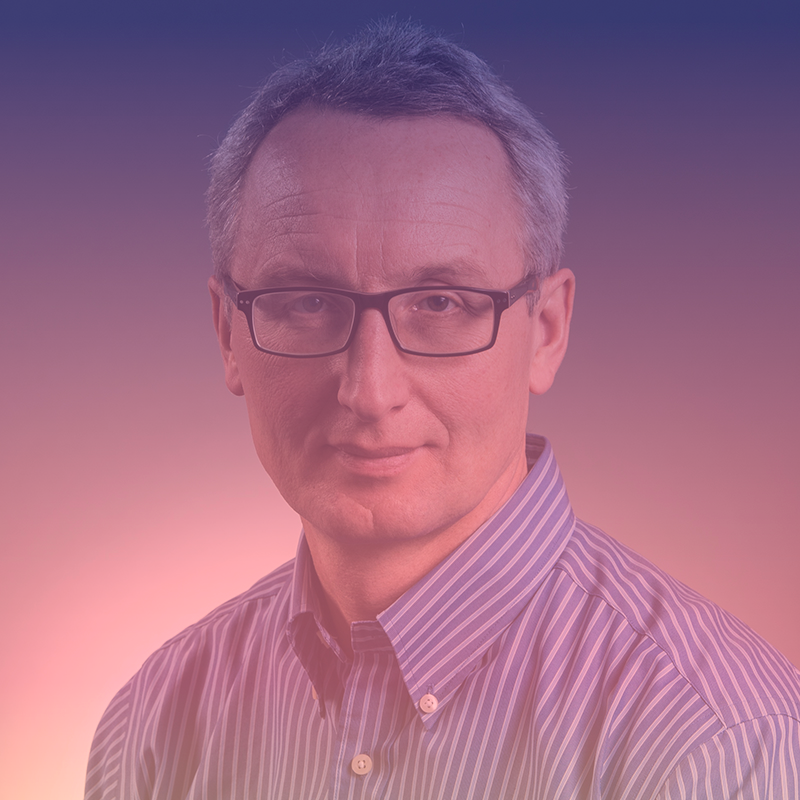















II BLACK SEA SCHOOL
ON FINANCIAL MATHEMATICS
ON FINANCIAL MATHEMATICS
QUANTATON

*QUANT (Quantitative researcher)
financial mathematicians working in investment and financial industry
About the School
APPLICATION DEADLINE:
Till November 10th (inclusive)
December 11th – 18th, 2022
Arrival on December 11th, departure on 19th
Arrival on December 11th, departure on 19th
PARTICIPATION IS FREE:
Transportation to the venue within Russia, as well as meals and accommodation, are provided by the organisers
Students in their 2nd to 4th year of Bachelor programmes in Mathematics, Information Technology and related fields
Students in their 3rd to 4th year of Bachelor programmes in Economics with an advanced maths background (e.g., if you are familiar with Riemann, Lebesgue, and Itô integrals)
Students in their 2nd to 4th year of specialist programmes in Mathematics
Students in their 3rd to 4th year of Bachelor programmes in Economics with an advanced maths background (e.g., if you are familiar with Riemann, Lebesgue, and Itô integrals)
Students in their 2nd to 4th year of specialist programmes in Mathematics
VENUE:
Campus of Sirius University, at the Sirius federal urban settlement near the Olympic Park and Adler Airport
Till November 18th (inclusive)
SELECTION RESULTS:
WHO WE ARE LOOKING FOR:
DATES:







QUANTATON
TESTING:
Till November 14th (inclusive)
December 11th – 18th, 2022, "Sirius" urban settlement


Week-long theory and practice workshop:
Participants will solve problems based on the material learnt during the school as 5-people teams.
one stop for both theory and practice

Knowledge on what financial mathematics is and how to evaluate basic financial instruments
Introduction to the new research field of option games
Understanding how to use C++ to solve various applied problems of financial mathematics
Introduction to the new research field of option games
Understanding how to use C++ to solve various applied problems of financial mathematics
5
days of theory
1
day of quantaton*
7
days of face-to-face interaction with experts
Intensive extracurricular programme
interacting with recognized science and industry experts

student campus

networking

The school will give you:
QUANTATON – competitive part of the school

Pricing of interest rate derivatives in C++
Dmitry Kramkov
Cand.Sci. in Phys. and Maths, Professor at Carnegie Mellon University

Lectures:
You will learn the key ideas underlying the implementation of such financial models, the basic algorithms for valuing derivative securities, and you will try to program in C++ on your own.
Topics:
- Price = replication. Backward induction.
- C++ elements: inheritance, smart pointers, RAII ("Resource Acquisition Is Initialization"), PImpl ("Pointer to Implementation").
- Developing a financial model for valuing derivatives. Rollback operator.
- State processes
- Calculating algorithms in C++ for valuing stock and interest rate option
Duality theory for Markov processes and option games
Vassili Kolokoltsov

Dr. of Phys. and Maths, Professor at Lomonosov Moscow State University, Professor Emeritus of University of Warwick
We shall present a unifying theory of the duality of Markov processes that encompasses in particular the notion used in insurance mathematics (sometimes referred to as Siegmund's duality) for the study of ruin probability and the duality responsible for the so-called put - call symmetries in option pricing. Other applications of duality arise in theory of interacting particles, in the theory of super-processes and in the models of evolutionary biology (Fisher diffusion).
Our general kth order duality can be financially interpreted as put - call symmetry for powered options. We shall develop an effective analytic approach to the analysis of duality leading to the full characterization of kth order duality of Markov processes in terms of their generators.
Our general kth order duality can be financially interpreted as put - call symmetry for powered options. We shall develop an effective analytic approach to the analysis of duality leading to the full characterization of kth order duality of Markov processes in terms of their generators.
Real options and option games
Andrey Leonidov
Dr. of Phys. and Maths, Head of the Lab of Mathematical Modeling of Complex Systems at the Lebedev Physics Institute of the Russian Academy of Sciences, Professor at MIPT

Topics:
• Lecture 1: Options theory for non-Gaussian stochastic processes
• Lecture 2: Introduction to the theory of real options
• Lecture 3: Option games (real options with game-theoretic components)
• Lecture 1: Options theory for non-Gaussian stochastic processes
• Lecture 2: Introduction to the theory of real options
• Lecture 3: Option games (real options with game-theoretic components)
Introduction to convex online optimization
Dmitry Rokhlin
Dr. of Phys. and Maths, Professor at Southern Federal University, Leading researcher at the Regional Research and Education Mathematics Center

Convex online optimization methods allow for the construction of theoretically justified recurrent algorithms for solving optimization problems that contain unknown changing factors. We will discuss the principles of constructing such algorithms and examine a number of their applications, in particular, the dynamic problem of choosing a portfolio of risky assets.
Topics:
• Preliminaries from convex analysis
• Online gradient descent, stochastic gradient descent, connection with statistical learning theory
• Online mirror descent
• Follow the Regularized Leader algorithms
• Applications: online linear regression, prediction using expert advice, minimax theorem, dynamic problem of portfolio choice
• Preliminaries from convex analysis
• Online gradient descent, stochastic gradient descent, connection with statistical learning theory
• Online mirror descent
• Follow the Regularized Leader algorithms
• Applications: online linear regression, prediction using expert advice, minimax theorem, dynamic problem of portfolio choice
Stage 1: October 12th – November 10th
Fill out the registration form at the Sirius University website and attach the following documents:
Fill out the registration form at the Sirius University website and attach the following documents:
How to join
Participating in each of the academic and extracurricular events at the Summer school is compulsory.
Participant may be individually exempt from an event based on a valid reason presented to the organisers.
The Foundation reserves the right to expel participants for violating the regulations.
Participant may be individually exempt from an event based on a valid reason presented to the organisers.
The Foundation reserves the right to expel participants for violating the regulations.
Recommended length – no more than one A4 page.
Suggested contents:
- Justified motivation for participating in the school – up to 15 points.
- Description of current knowledge, skills and experience that will allow you to master the material offered at the school – up to 10 points.
- Description of current research interests – up to 5 points.
- Description of how the knowledge and skills provided by the school will be applied in academic and/or professional field – up to 10 points.
Suggested contents:
- Justified motivation for participating in the school – up to 15 points.
- Description of current knowledge, skills and experience that will allow you to master the material offered at the school – up to 10 points.
- Description of current research interests – up to 5 points.
- Description of how the knowledge and skills provided by the school will be applied in academic and/or professional field – up to 10 points.
Recommended length – no more than two A4 pages.
Suggested contents:
- Higher education obtained and/or being obtained, relevant for the school (university, level and dates) – up to 20 points.
- Average grade across subjects, relevant for the school (informatics, mathematics, statistics, econometrics and other related disciplines) – up to 10 points.
Only considered when provided along with the grade transcript for all semesters up until the application date.
- Description of academic or other experience in the current field of studies (including term papers with topic names) – up to 10 points.
- Description of your technical skills – up to 10 points.
- Information on publications (if any) – up to 5 points.
- Information on other achievements (if any) – up to 5 points.
Suggested contents:
- Higher education obtained and/or being obtained, relevant for the school (university, level and dates) – up to 20 points.
- Average grade across subjects, relevant for the school (informatics, mathematics, statistics, econometrics and other related disciplines) – up to 10 points.
Only considered when provided along with the grade transcript for all semesters up until the application date.
- Description of academic or other experience in the current field of studies (including term papers with topic names) – up to 10 points.
- Description of your technical skills – up to 10 points.
- Information on publications (if any) – up to 5 points.
- Information on other achievements (if any) – up to 5 points.
If you want to receive points for your average grade in relevant subjects (see above in the Resume description), you must provide a transcript with grades for all semesters of your current education up until the application date.
Providing a recommendation letter from a research supervisor / programme academic supervisor / faculty management gives the participant an advantage during selection with other factors being equal.
Stage 2: November 1st – 14th
Attend preliminary seminars on the following topics and pass a knowledge assessment:
Attend preliminary seminars on the following topics and pass a knowledge assessment:
Schedule (Moscow time):
November 5th, Saturday: 13:00 - 14:30
November 9th, Wednesday: 13:00 - 14:30
November 12th, Saturday: 13:00 - 14:30
Topics:
1. Probability space, random variables, conditional mathematical expectation
2.Stochastic processes, Brownian motion, Itô integral, Itô's lemma
3. Martingales (in the context of stochastic integrals), Girsanov theorem, stochastic differential equations
4. Black-Scholes model
Lecturer – Mikhail Zhitlukhin, Cand.Sci. in Phys. and Maths, Senior researcher at the Steklov Mathematical Institute of the Russian Academy of Sciences
November 5th, Saturday: 13:00 - 14:30
November 9th, Wednesday: 13:00 - 14:30
November 12th, Saturday: 13:00 - 14:30
Topics:
1. Probability space, random variables, conditional mathematical expectation
2.Stochastic processes, Brownian motion, Itô integral, Itô's lemma
3. Martingales (in the context of stochastic integrals), Girsanov theorem, stochastic differential equations
4. Black-Scholes model
Lecturer – Mikhail Zhitlukhin, Cand.Sci. in Phys. and Maths, Senior researcher at the Steklov Mathematical Institute of the Russian Academy of Sciences
Schedule (Moscow time):
November 6th, Sunday: 18:30 - 20:00
November 8th, Tuesday: 18:30 - 20:00
November 10th, Thursday: 18:30 - 20:00
Lecturer – Igor Udovichenko
November 6th, Sunday: 18:30 - 20:00
November 8th, Tuesday: 18:30 - 20:00
November 10th, Thursday: 18:30 - 20:00
Lecturer – Igor Udovichenko
Applicants with the highest score across both selection stages will be offered to participate in the school.
The results of the selection are final and cannot be appealed.
The results of the selection are final and cannot be appealed.
Selected participants will have to undergo additional online training for the school:
Lectures on November 26th at 13:00, December 1st at 15:00 (Moscow time),
Lecturer – Mikhail Zhitlukhin
Lectures on November 26th at 13:00, December 1st at 15:00 (Moscow time),
Lecturer – Mikhail Zhitlukhin
Fill out the registration form at the Sirius University website.
Ready to apply?
User instructions for the Sirius University website account.
If you have technical inquiries about submitting an application, please contact tech support:
8 (800) 100 76 63
help@sochisirius.ru
8 (800) 100 76 63
help@sochisirius.ru
November 13th – knowledge assessment
















Organisational Committee
Yuri Kabanov
Committee chairman, Dr. of Phys. and Maths, Professor at Moscow School of Economics, Faculty of Mechanics and Mathematics, Moscow State University
Kirill Klimov
Cand. Sci. in Phys. and Maths, CEO, Member of the Board of Directors at the Vega Institute Foundation
Marianna Tsareva
Deputy Chief Executive Officer at the Vega Institute Foundation
Valeria Stefanenko
Head of Development at the Vega Institute Foundation
Valeria Volobueva
Project Manager of Educational Initiatives at the Vega Institute Foundation











The Foundation's Other Study Programs



